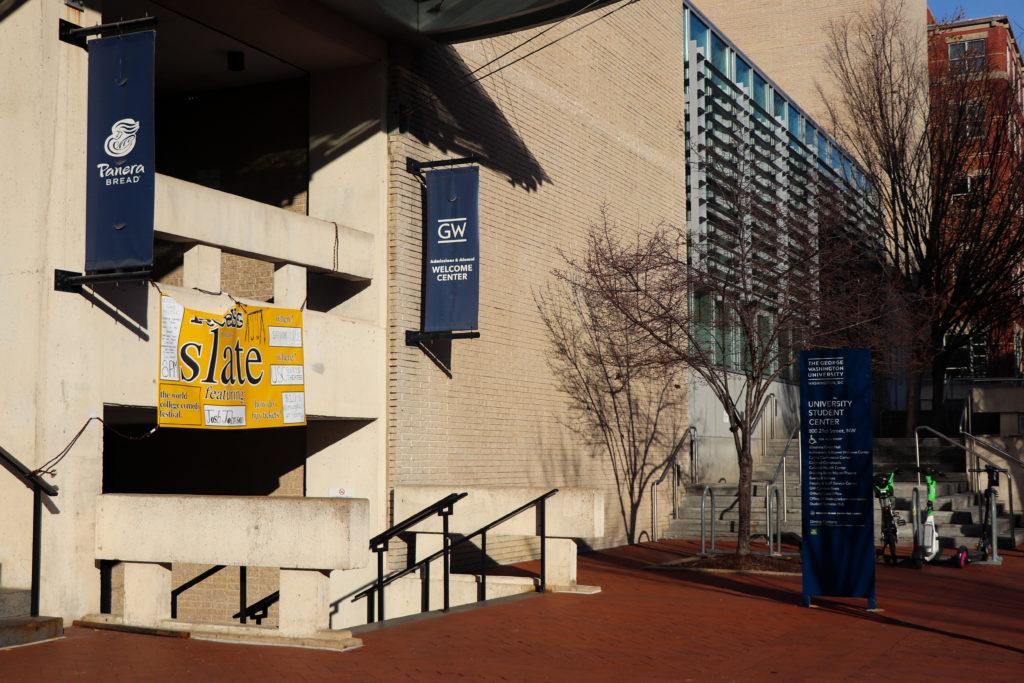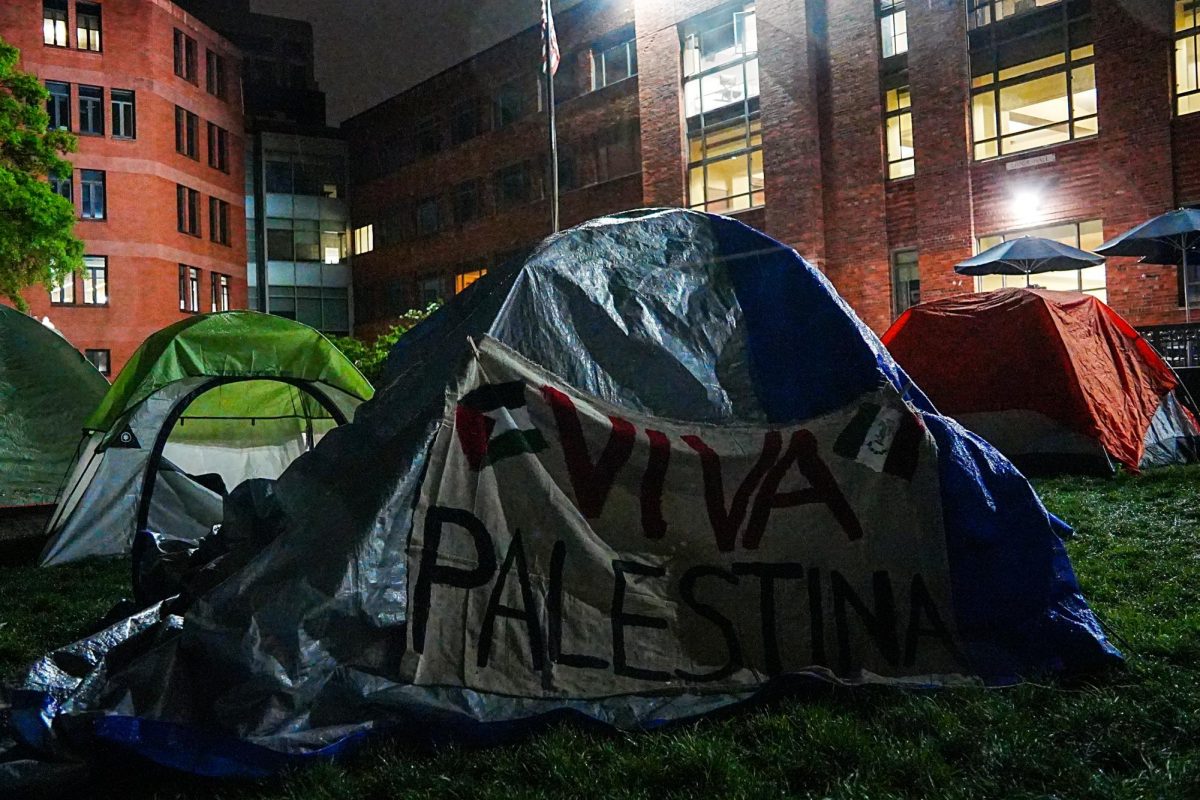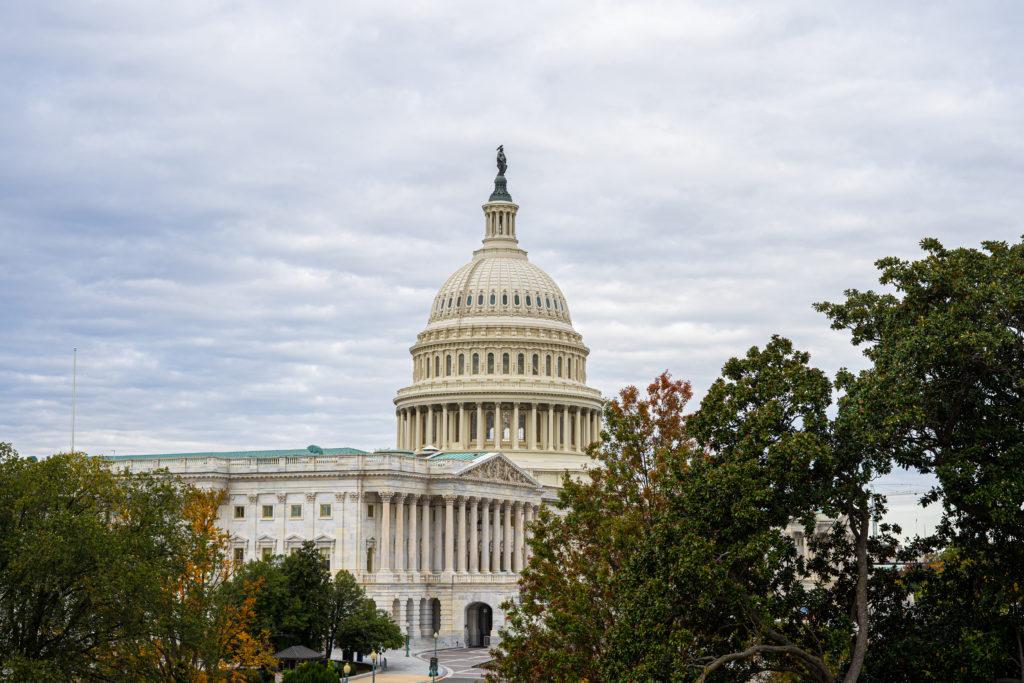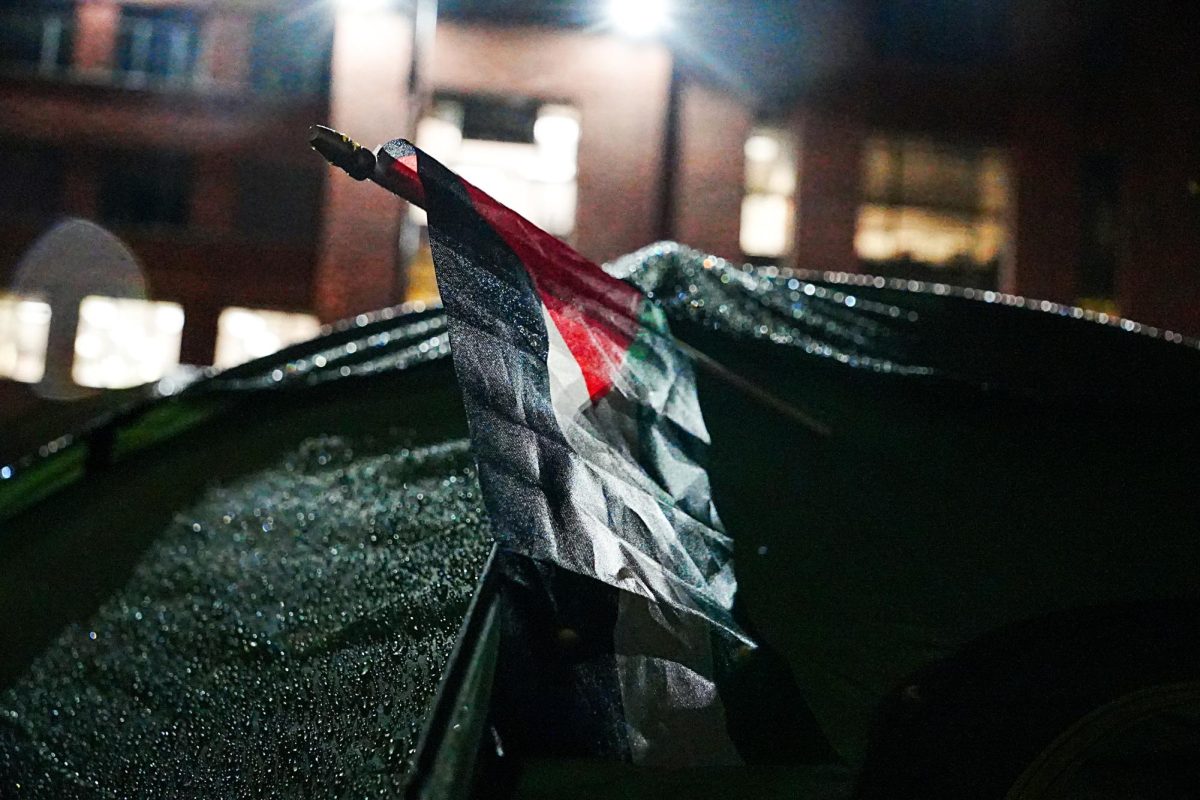Student leaders said the first year of the University-Wide Programs Fund delivered valuable funds to student organizations, but once the fund ran dry three months before the end of the school year, it derailed their plans to host large spring events.
David Bonilla-Ciferri, the assistant director of student involvement and leadership and a University-Wide Programs Fund committee member, said GW donates 50 cents for each credit hour a student takes to subsidize the fund, which is intended for events targeting an attendance larger than 350. The University-Wide Programs Fund committee disbursed a total of $219,175 to 33 student events through February, but the fund ran dry last month, which student leaders said spoiled opportunities to fund large events from March through May.
Bonilla-Ciferri announced the fund’s depletion at an SA meeting earlier this month, saying $1.53 remained in late February.
“This was a truly collaborative process between the student members and the staff on the team,” he said. “We spent a lot of time talking about what made the most sense.”
A total of three administrators and three SA senators compose the programs fund committee.
Brian Joyce, the assistant dean of student life, said the programs fund is designed to support heritage celebrations and large-scale events. He said the committee considered applications based on how many students would benefit and whether funding was “crucial” for the event’s success.
“Some event requests did not meet the criteria, or were able to find additional sources of funding that negated the need for UWPF money,” he said in an email. “The committee funded requests on a rolling basis, and the number of diverse, inclusive and community-building events that came in were impressive and deserved funding, which resulted in the fund running out of money prior to the end of the academic year.”
Leaders of student organizations that received funding said the programs fund was flexible with students’ requests and operated similarly to the SA’s allocations process.
Arun Nimmagadda, the former vice president of professional development for Alpha Kappa Psi, a professional business fraternity, said the programs fund granted $5,502 of the $7,619 requested for a joint conference held between Alpha Kappa Psi and Delta Sigma Pi held in October.
Nimmagadda said the application asked the group to create a list of line items for funding and describe the event’s programming and campus impact to show the conference was open for all students. He said he could readjust certain items and quantities in his budget proposal for two weeks after the committee made its initial allocation to gain more funding.
“I think that the process was super helpful because it also helped us in our internal budgeting and thinking about what we really, really needed versus what would be nice to have,” Nimmagadda said.
Joey Meirson, the director of finance for Class Council, an organization that hosts events for each graduating class, said she applied for and received $8,699 for Class Council’s Student Showcase, featuring performances from multiple student organizations held in September.
Meirson, a junior studying political science, said Class Council received the full $8,699 they requested for the event with an expected attendance of 500 students. Meirson said because the event was for profit with $2 tickets, Class Council returned half of its revenue, about $250, to the programs fund.
“The University-Wide Programs Fund prefers not to fund for-profit events,” she said. “And usually if it is a for-profit event. You just have to give back half of the profit you made to the fund.”
Meirson also received $1,500 of the $8,909 requested for the Battle of the Acapellas event taking place in April. Meirson said while Class Council did not receive the full amount she requested, representatives from the programs fund committee recommended they host the event at a different venue to cut costs.
“Even if the fund can’t meet the amount that you want, they’ll still help you try and get the event,” Meirson said.
The Student Bar Association, an umbrella organization for law school student organizations, lost $30,000 that officials reallocated toward the programs fund. SBA Sen. John Tuley, the chair of the SBA Senate’s Finance Committee, said the programs fund’s creation at the beginning of this academic year kept funding out of reach for graduate student organizations that do not typically host University-wide events.
Tuley said officials from the law school’s finance department told the committee about the reduction to create the programs fund during their budgeting process in August.
“We’d already met with all the student organizations and had balanced the budget,” Tuley said in an interview. “So that was very detrimental to us.”
Tuley said graduate student organizations struggle to qualify for their events for the programs fund because of the attendance requirements. He said the fund seemed to grant money to events open to all students, even though they’re primarily hosted by undergraduate students.
“All of the events that were funded were predominantly undergraduate events,” Tuley said. “They weren’t advertised to law students in any way.”
He said law school events sometimes include serving alcohol, which makes it unfeasible to invite undergraduates.
The depletion of the University-Wide Programs Fund for the rest of the academic year means student organizations cannot secure funding for large events later in the year.
Gabriel Young, the president of the Philippine Culture Society, said the depletion of the fund has left PCS and at least five other AAPI student organizations struggling to plan and fund celebrations for Asian American Pacific Islander Heritage Month in May.
Young, who is also an SA senator, said PCS leaders were planning on applying for about $1,000 from the fund to cover costs of catering and costumes needed for performances during the celebration. Young said without any funds left from the programs fund, he needs to reach out to alumni for donations and organize last-minute fundraisers.
“The UWPF depletion really just threw a wrench in how we were adjusting our own budget for this entire semester, let alone for the event,” Young said.
Young said the programs fund committee should have been more aware of the spread of events throughout the semester to avoid the depletion.
“I am just wishing that there was more cross-cultural solidarity, where our organizations would have been allocated a piece of the pot and the pie before fully allocating or dispersing the money early on,” Young said.
Young said in the future, he hopes the fund will have a set percentage allotted for multicultural celebrations.
“Instead of it being a first-come, first-serve basis, I wish everything was divided up equally from the start,” he said.
Erika Filter contributed reporting.








